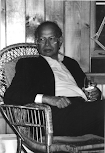These form an important part in all religions. In Hinduism, Sandhyavandanam is enjoined thrice a day at morning, noon & evening. In Islam, Namaz is to be conducted five times a day. But barring a few minor changes regarding the time in which they are conducted, the text remains substantially the same.
In William Law's "A Serious Call to a Devout & Holy life", he suggests that one should rise early in the morning & pray preferably in a place set apart for that purpose. This first prayer of the day should be a thanksgiving to God for giving us a fresh day for offering to Him all that one may have, for his service & glory & then proceed to express various divine attributes of God. Singing Psalms (devotional songs) will be a necessary beginning of devotions, which should be done fasting at this time.
The next hour of praying should be at nine in the morning, the subject being the practice of humility, & guard against the sin of pride. Law also mentions that importantly Christianity requires us to live contrary to the world.
Next devotion at twelve noon should have universal love as the subject. As a corollary of this, one should intercede with God for our fellow creatures.
 Next devotion should be at three in the afternoon, the subject being resignation to the Will of God in all our actions & designs.
Next devotion should be at three in the afternoon, the subject being resignation to the Will of God in all our actions & designs.
Evening prayer at six should consist of examining our heart & confessing all our sins.
These prayers can be performed mentally, even if one is at work (except the singing of Psalms on rising in the morning.)
The last prayer of the day just before going to bed should be a thanksgiving for the gift of the day & meditate on death, the inevitable, which sleep resembles.
Law concludes that celibacy & voluntary poverty are not necessary to arrive at perfection. But if practiced, will take one to perfection safely & quickly.
























